The Worst Times to Drink Wine, According to Dietitians
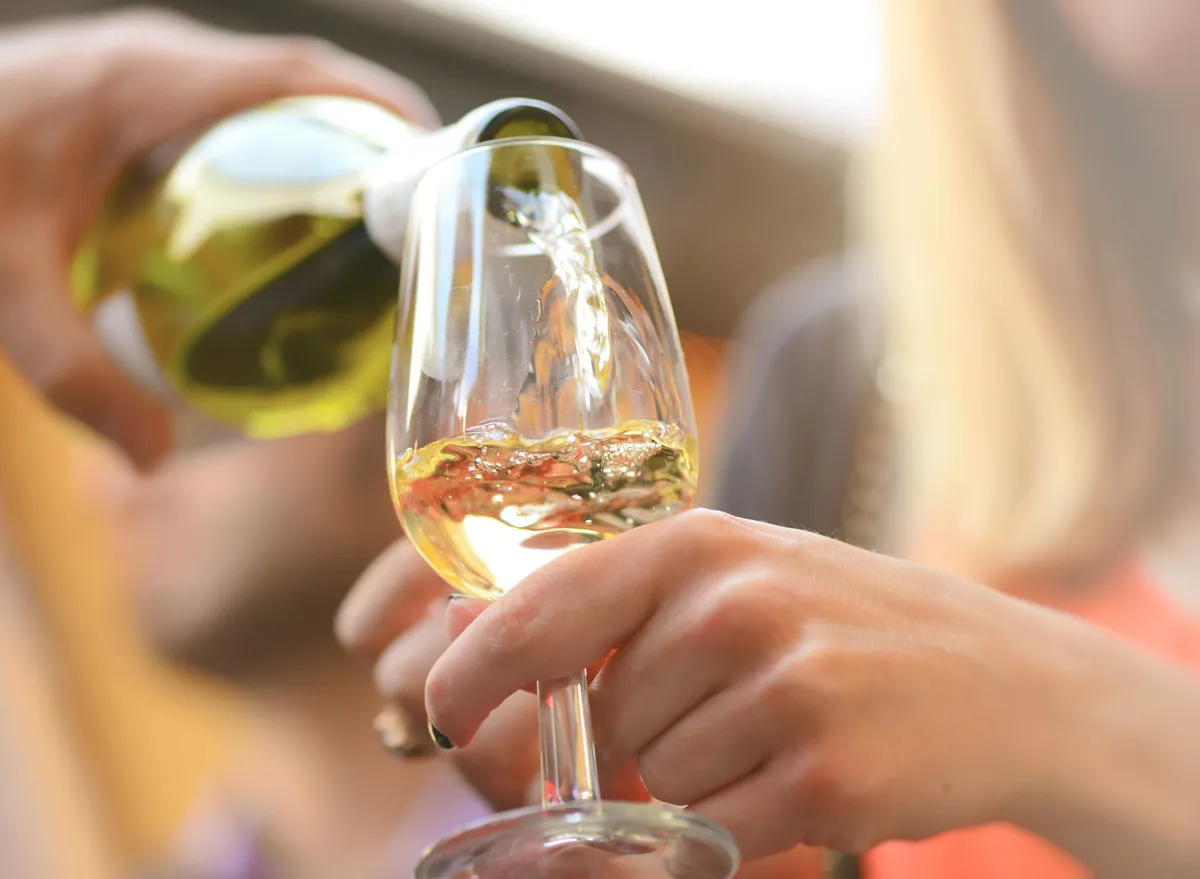
In case you haven't noticed, Americans are guzzling more wine than ever before. In fact, a recent survey revealed that a whopping 75% of adults drink it, mainly because they like the taste, it pairs well with food, and it simply makes them happy. But interestingly, 42% of people seem to think that drinking wine is healthy, too. Research has suggested that red wine in particular may come with a number of health benefits when enjoyed in moderation. However, whether or not you reap those perks can depend on when you're sipping it—and experts say the worst times to drink wine may not be when you think.
So, when is wine o'clock? Whether you tend to pour yourself a glass while binge-watching a new show on Friday night, or after a long workday while you're cooking dinner, it's important to understand how your habits can impact alcohol's effects on your body. Because whether you know it or not, physical activity, the amount of food and water you've eaten, your current mood, and many other factors can play a role in how you respond to that sauvignon blanc or shiraz.
Read on to find out the worst times for wine—and for more healthy tips, read up on our list of The 7 Healthiest Foods to Eat Right Now.
When you're stressed, anxious, or sad.
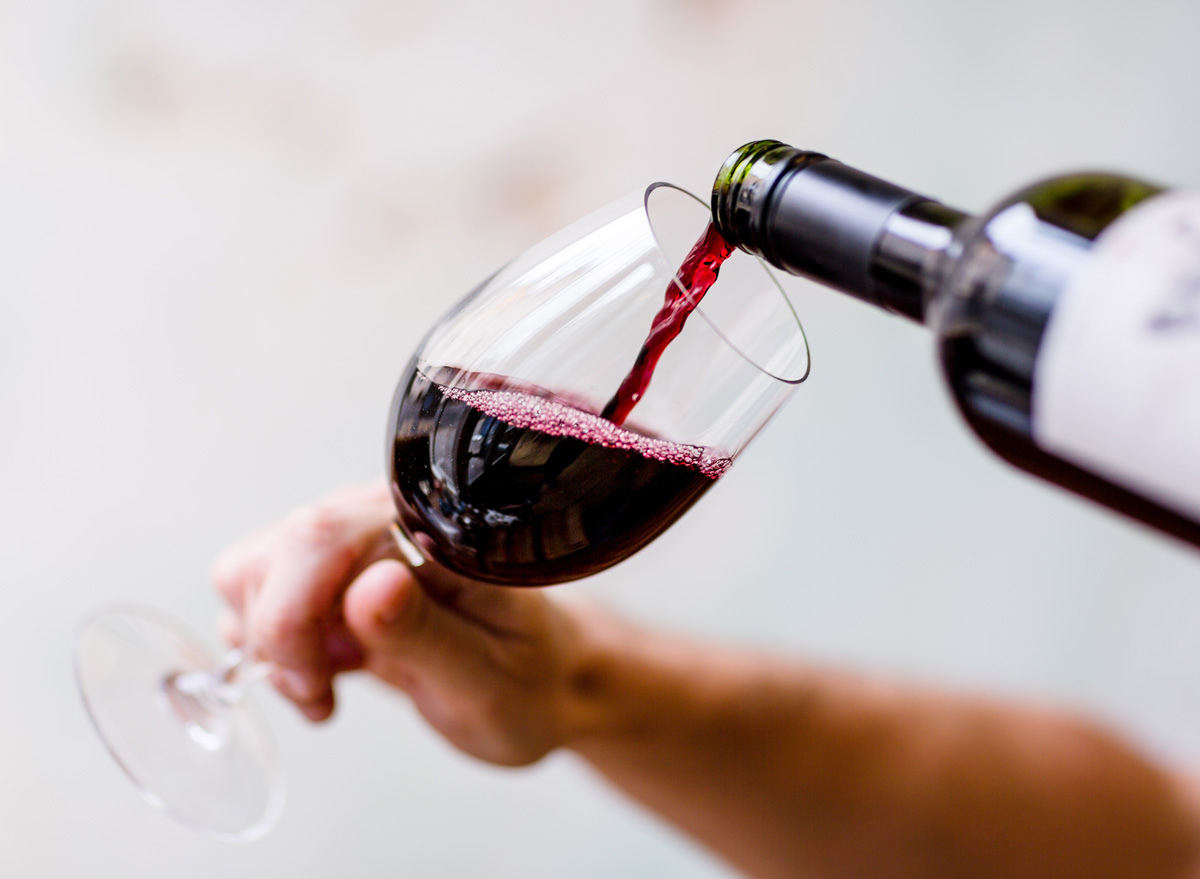
"It can be tempting to drink to take the edge off when you're stressed, but this is a slippery slope with potentially deleterious consequences," says Samantha McKinney, Registered Dietitian at Life Time. "Alcohol can be addictive, and using it as a coping strategy should be avoided."
Since alcohol alters the levels of certain neurotransmitters in your brain—like serotonin, which stabilizes your mood and promotes feelings of happiness—it can actually worsen anxiety and depression once the buzz wears off. That's why The Cleveland Clinic recommends finding healthier coping mechanisms, such as getting fresh air, reaching out to social contacts, and seeking therapy if necessary.
"Drinking when you're sad is a way to escape or forget the pain—which is a temporary solution at best and is not the ideal way to deal with legitimate problems," adds a certified dietitian and nutritionist at Keatley Medical Nutrition Therapy in New York City. She suggests calling the Substance Abuse and Mental Health Services Administration (SAMHSA) at 1-800-662-HELP if you feel like you're relying on alcohol during times of sadness or stress.
Don't forget to check out What Happens When You Drink a Glass of Wine Every Night.
Before bedtime.
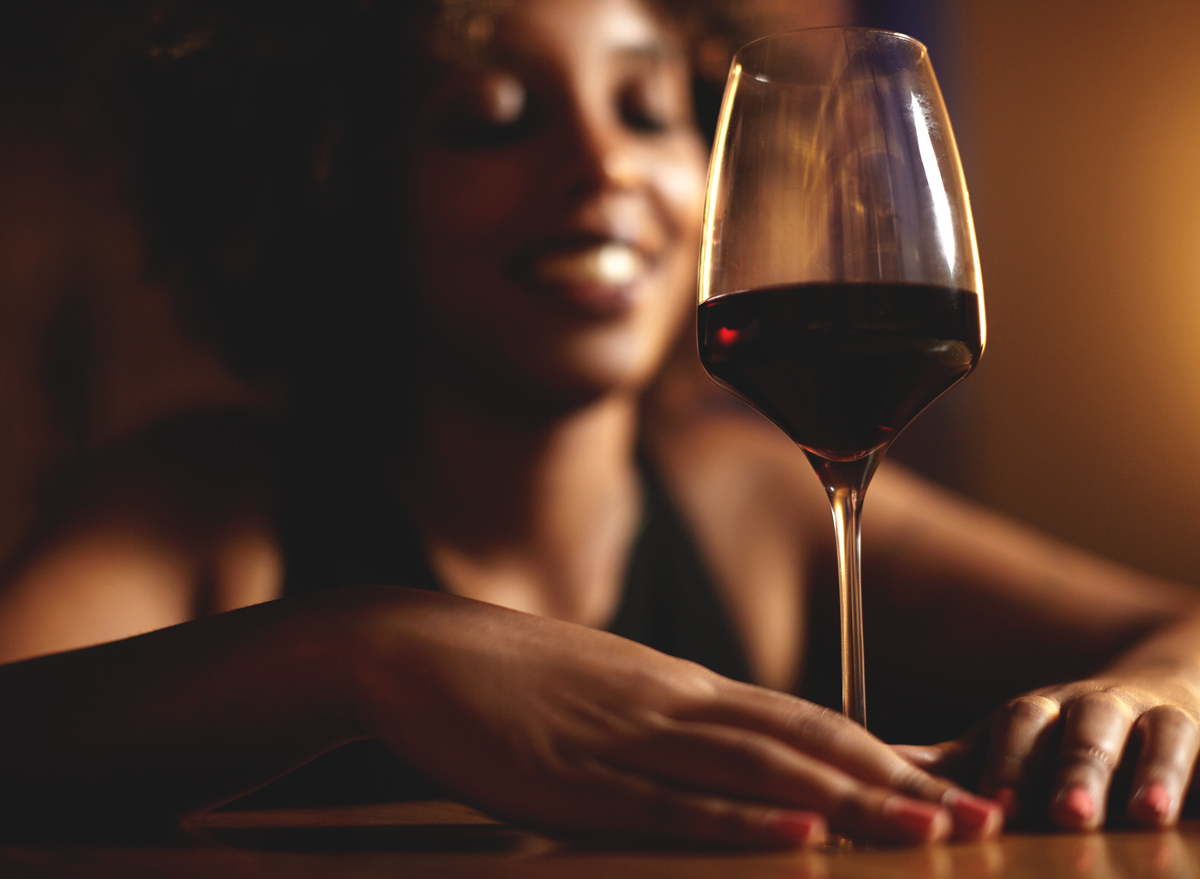
According to experts, the idea that unwinding with a glass of wine at night will help you sleep is actually a myth.
"The closer to bed you drink, the more it disrupts your sleep because it can drop your blood sugar," says McKinney.
Keatley says that drinking wine—or any other kind of alcohol—right before hitting the hay can cause decreased sleep onset latency, which may help you to fall asleep more quickly. However, it can ultimately result in poor quality sleep because while your liver is metabolizing the alcohol, it impacts the duration of your sleep cycles.
"Not to mention, alcohol can irritate the stomach lining and increase the symptoms of Gastroesophageal reflux (GERD)—especially when you're laying down and gravity is not helping to keep it all down," she says.
Even when you don't drink wine close to bedtime, it can still sabotage your shuteye. One 2018 study found that even just moderate amounts of alcohol (two servings per day for men and one serving per day for women) decreased sleep quality by 24%.
Get even more healthy tips straight to your inbox by signing up for our newsletter.
Right before or after a workout.
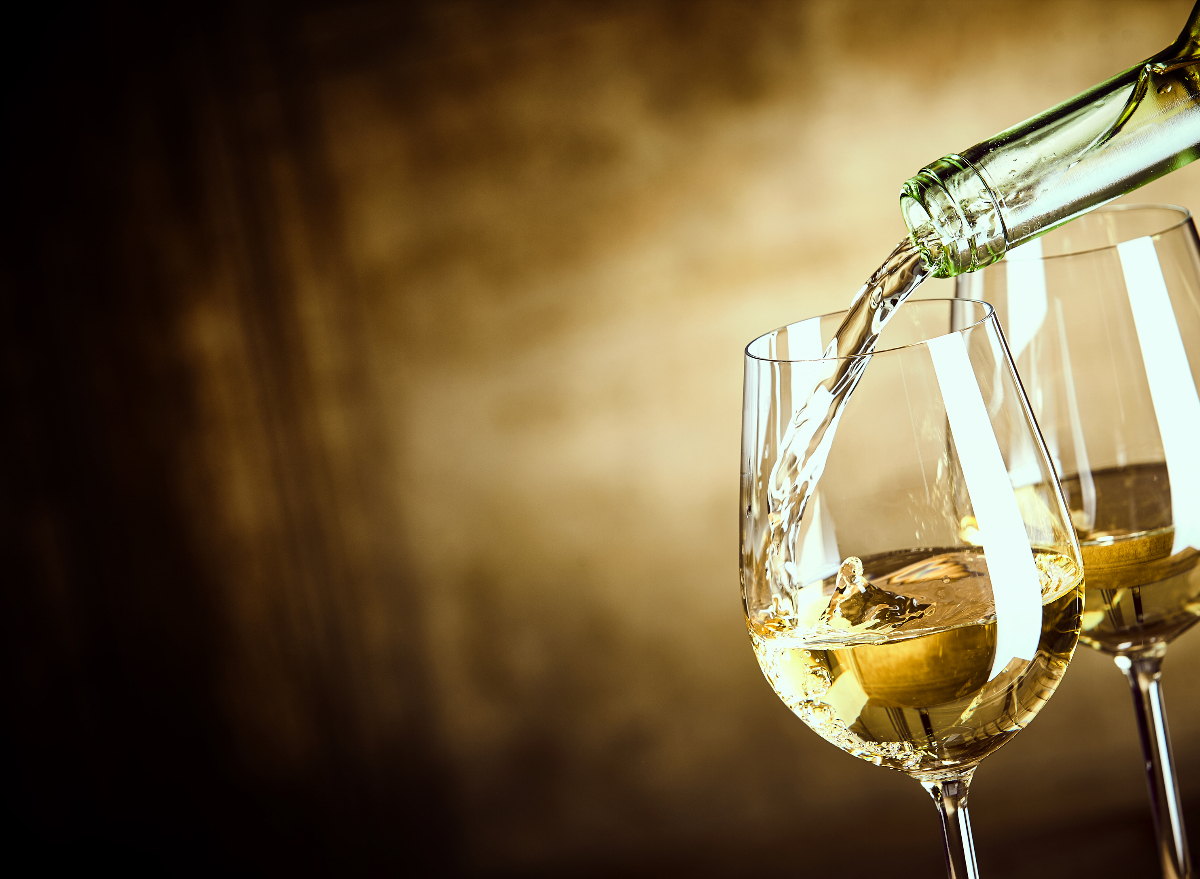
Not drinking right before a sweat sesh should go without saying—after all, even the slightest buzz could prevent you from doing certain exercises properly, and poor form could lead to an injury. However, Keatley says you should avoid downing a glass of wine immediately post-workout, too, since it's a diuretic.
"Alcohol decreases the production of vasopressin in the body, which causes your kidneys to clear out more water (as urine) than it normally would, which can lead to dehydration," explains Keatley.
Instead, she advises reaching for an electrolyte-fortified beverage after hitting the gym to rehydrate your body.
When you're dehydrated.
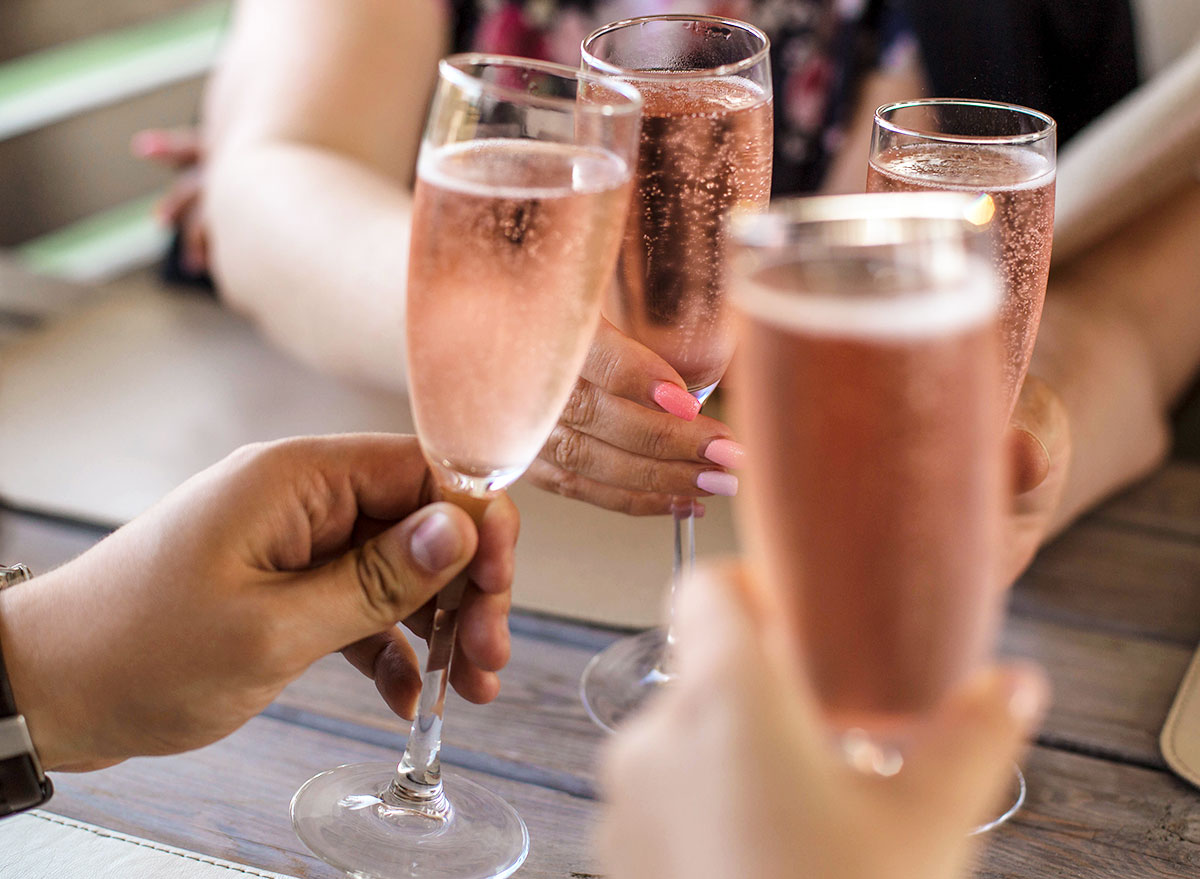
Speaking of dehydration, if you're already slacking on your water consumption, drinking wine is a bad idea. As a general rule, McKinney says you should never reach for a glass of wine if you feel thirsty—because odds are that means you're dehydrated. Since thirst isn't always a reliable sign of dehydration, be aware of other warning signs as well, such as dark-colored urine or less frequent urination, fatigue, dizziness, and confusion.
"When you're dehydrated, you're likely to quickly consume more alcohol to quench the thirst," adds McKinney. "Not only is this metabolically damaging, but alcohol can further dehydrate you by increasing how often you need to urinate. This vicious cycle is more likely going to lead to a headache and next-day hangover as well."
After you've had a vaccine.
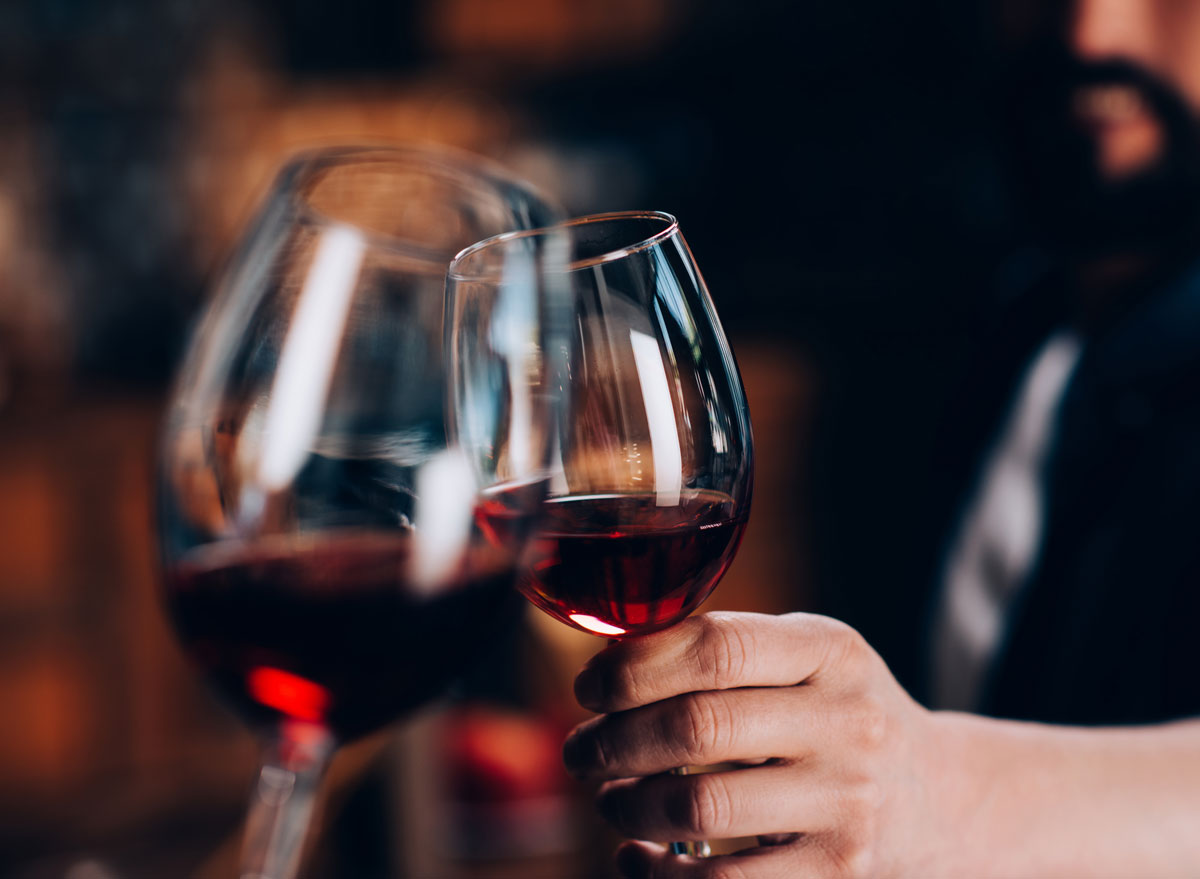
Whether you're getting your annual flu shot or the COVID-19 vaccine, Keatley strongly advises against having a glass of wine right after it's over.
"It's not that the wine will directly interact with the vaccine, but alcohol in the short term can depress your immune system, which is the opposite of what you want following a vaccine," she explains.
If you're already experiencing unpleasant side effects or an allergic reaction from a vaccine, then Keatley says downing a glass of wine will likely just make things worse.
While moderate amounts of alcohol are not believed to impair the effectiveness of the coronavirus vaccine, some experts say excess drinking should be avoided for at least a week before the first dose and one month after the second dose.
A 2015 study found that alcohol can cause inflammation in the gut and alter the overall microbiome, potentially causing damage to the microorganisms that support immune system health.
When you haven't eaten anything.
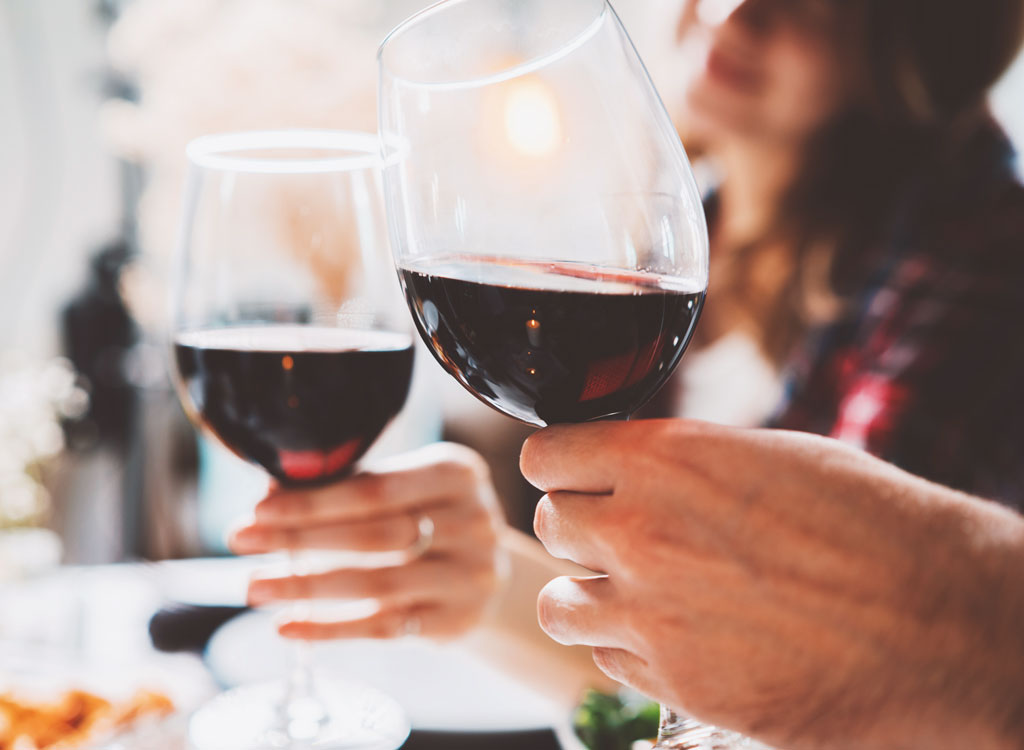
You may want to think twice about knocking back a glass or two of wine before you have dinner—because when you drink on an empty stomach, your body absorbs the alcohol far more quickly into your small intestine. As a result, many of the side effects of drinking may be amplified, like difficulty moving with coordination and thinking clearly. Intensifying these effects could ultimately be dangerous, depending on how many glasses of wine you've had without eating, as well as other factors. When there's food in your stomach, on the other hand, the alcohol is absorbed more slowly.
"When you drink wine, make sure you eat something," says McKinney. "It's best to pair it with a balance of protein, complex carbohydrate, and healthy fat. For example, think of a charcuterie board: some meat, cheese, and a few crackers or a small serving of grapes."
Here are the Side Effects of Giving Up Wine, According to Science.








